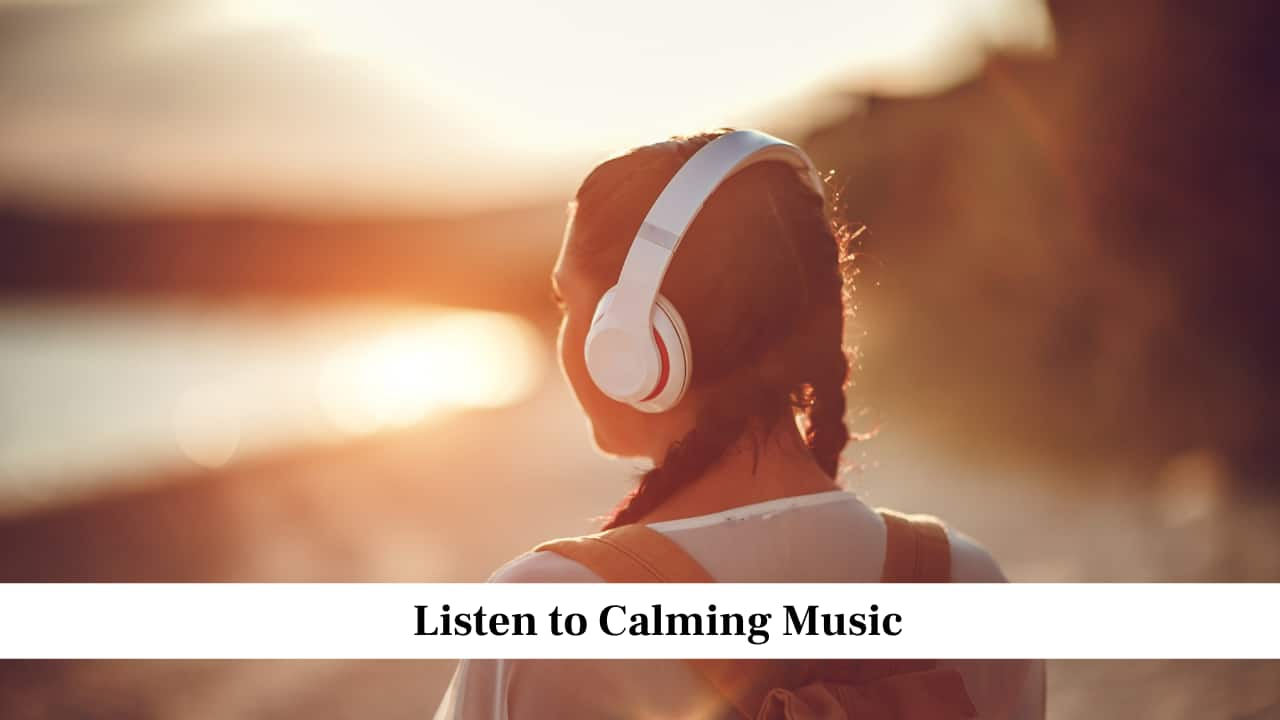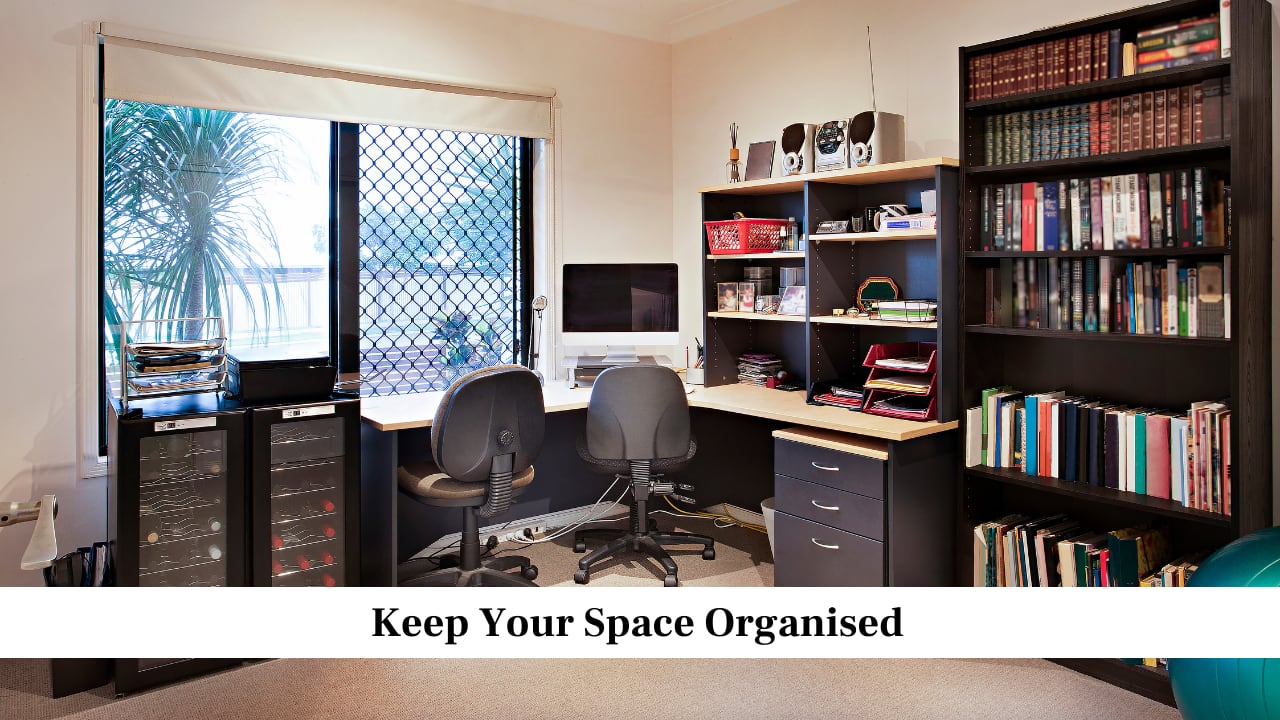10 Simple Habits to Calm Your Mind (No Meditation Required)
Here are ten simple habits anyone can follow to calm the mind without meditation. Each habit is easy to practise and supports everyday mental well being.
1/10

Go for a Walk in Nature
Spending time outdoors can help calm the mind. A simple walk in a park or a quiet street allows you to step away from screens and daily pressure. The fresh air and natural surroundings create a sense of space, giving your thoughts room to settle. Walking also improves blood circulation and supports a steady breathing rhythm, which in turn helps reduce tension. Even ten to fifteen minutes can make a difference to your mood and clarity.
Spending time outdoors can help calm the mind. A simple walk in a park or a quiet street allows you to step away from screens and daily pressure. The fresh air and natural surroundings create a sense of space, giving your thoughts room to settle. Walking also improves blood circulation and supports a steady breathing rhythm, which in turn helps reduce tension. Even ten to fifteen minutes can make a difference to your mood and clarity.
2/10

Write Down Your Thoughts
Writing helps to release clutter from the mind. Putting thoughts, worries, or plans on paper makes them easier to understand and manage. It is not about creating perfect sentences but simply recording what is on your mind. Some people make lists, while others prefer free writing. This practice helps reduce overthinking, as you no longer carry every thought in your head. A notebook can act like a safe space where you can return anytime.
Writing helps to release clutter from the mind. Putting thoughts, worries, or plans on paper makes them easier to understand and manage. It is not about creating perfect sentences but simply recording what is on your mind. Some people make lists, while others prefer free writing. This practice helps reduce overthinking, as you no longer carry every thought in your head. A notebook can act like a safe space where you can return anytime.
3/10

Listen to Calming Music
Music has a strong effect on emotions. Soft, slow-paced music can help lower stress and bring the mind to a calmer state. It is best to choose tunes without heavy beats or fast rhythms. Some people prefer classical pieces, while others find gentle instrumental sounds helpful. Listening with closed eyes and steady breathing enhances the effect. This habit is easy to follow daily, whether at home, while resting, or during travel.
Music has a strong effect on emotions. Soft, slow-paced music can help lower stress and bring the mind to a calmer state. It is best to choose tunes without heavy beats or fast rhythms. Some people prefer classical pieces, while others find gentle instrumental sounds helpful. Listening with closed eyes and steady breathing enhances the effect. This habit is easy to follow daily, whether at home, while resting, or during travel.
4/10

Reduce Screen Time Before Bed
Spending long hours on phones or computers can leave the mind restless. Reducing screen use before sleep helps your brain slow down and prepare for rest. The light from screens delays sleep signals, making it harder to relax. Instead, try reading a book, stretching lightly, or listening to an audio story. Creating this routine improves sleep quality and supports a calm mind at the end of the day.
Spending long hours on phones or computers can leave the mind restless. Reducing screen use before sleep helps your brain slow down and prepare for rest. The light from screens delays sleep signals, making it harder to relax. Instead, try reading a book, stretching lightly, or listening to an audio story. Creating this routine improves sleep quality and supports a calm mind at the end of the day.
5/10

Practise Deep Breathing
Breathing deeply, even without meditation, can calm the nervous system. Taking slow breaths in and out signals to the body that it is safe and reduces stress levels. You can try inhaling through the nose, holding for a few seconds, and exhaling slowly through the mouth. Just three to five minutes of deep breathing helps clear the mind and create a sense of balance. It is a simple tool you can use anywhere.
Breathing deeply, even without meditation, can calm the nervous system. Taking slow breaths in and out signals to the body that it is safe and reduces stress levels. You can try inhaling through the nose, holding for a few seconds, and exhaling slowly through the mouth. Just three to five minutes of deep breathing helps clear the mind and create a sense of balance. It is a simple tool you can use anywhere.
6/10

Keep Your Space Organised
A cluttered space often makes the mind feel unsettled. Keeping your room or desk tidy creates a sense of order, which naturally supports calmness. Simple habits like putting items back in place, clearing unnecessary objects, and maintaining cleanliness reduce distraction. When your environment is organised, your thoughts can also flow more smoothly. A clear space encourages focus and helps reduce the feeling of being overwhelmed by tasks.
A cluttered space often makes the mind feel unsettled. Keeping your room or desk tidy creates a sense of order, which naturally supports calmness. Simple habits like putting items back in place, clearing unnecessary objects, and maintaining cleanliness reduce distraction. When your environment is organised, your thoughts can also flow more smoothly. A clear space encourages focus and helps reduce the feeling of being overwhelmed by tasks.
7/10

Drink Enough Water
Dehydration can affect how you think and feel. Sometimes stress or tiredness is linked to not drinking enough water. Making a habit of drinking regularly helps the body function properly and keeps the mind clear. Carrying a water bottle or setting reminders during the day can ensure you stay hydrated. Even small steps, such as starting the morning with a glass of water, can support calmness and focus throughout the day.
Dehydration can affect how you think and feel. Sometimes stress or tiredness is linked to not drinking enough water. Making a habit of drinking regularly helps the body function properly and keeps the mind clear. Carrying a water bottle or setting reminders during the day can ensure you stay hydrated. Even small steps, such as starting the morning with a glass of water, can support calmness and focus throughout the day.
8/10

Spend Time on a Hobby
Doing something you enjoy takes your attention away from stress. Whether it is drawing, cooking, gardening, or playing a musical instrument, hobbies engage the mind in a different way. They give a sense of progress and enjoyment that helps balance daily pressure. Regular time spent on a hobby provides relaxation and helps the brain shift from constant work or worry. It does not need to be for long, even short periods can help.
Doing something you enjoy takes your attention away from stress. Whether it is drawing, cooking, gardening, or playing a musical instrument, hobbies engage the mind in a different way. They give a sense of progress and enjoyment that helps balance daily pressure. Regular time spent on a hobby provides relaxation and helps the brain shift from constant work or worry. It does not need to be for long, even short periods can help.
9/10

Limit Caffeine Intake
Too much caffeine can make the mind restless and disturb sleep. Being mindful of how much tea, coffee, or energy drinks you consume can help keep your mind calm. Replacing one cup with herbal tea or water during the day can reduce the effect of overstimulation. Caffeine affects people differently, so noticing your own body’s response is important. Keeping intake moderate supports steady energy and a relaxed state of mind.
Too much caffeine can make the mind restless and disturb sleep. Being mindful of how much tea, coffee, or energy drinks you consume can help keep your mind calm. Replacing one cup with herbal tea or water during the day can reduce the effect of overstimulation. Caffeine affects people differently, so noticing your own body’s response is important. Keeping intake moderate supports steady energy and a relaxed state of mind.
10/10

Connect with People You Trust
Talking to someone you trust can ease mental pressure. Sharing your feelings with a family member, a close friend, or a supportive colleague helps release worries. It does not always require advice or solutions; sometimes being heard is enough. Human connection reminds you that you are not alone in challenges. Regular conversations or spending quality time with loved ones strengthens bonds and contributes to a calm and balanced mind.
Talking to someone you trust can ease mental pressure. Sharing your feelings with a family member, a close friend, or a supportive colleague helps release worries. It does not always require advice or solutions; sometimes being heard is enough. Human connection reminds you that you are not alone in challenges. Regular conversations or spending quality time with loved ones strengthens bonds and contributes to a calm and balanced mind.
Discover the latest Business News, Budget 2025 News, Sensex, and Nifty updates. Obtain Personal Finance insights, tax queries, and expert opinions on Moneycontrol or download the Moneycontrol App to stay updated!






